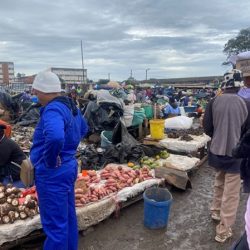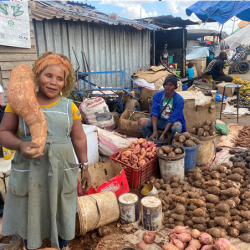Giving farmers, commodities and consumers a voice through market data
Some of the most powerful instincts about African agriculture and food systems are found only in territorial mass markets where the majority of smallholder farmers sell their commodities and the majority of low-income consumers get their food. That is why investment in data analyses is more important than collecting data for its own sake. Much Read more about Giving farmers, commodities and consumers a voice through market data[…]


